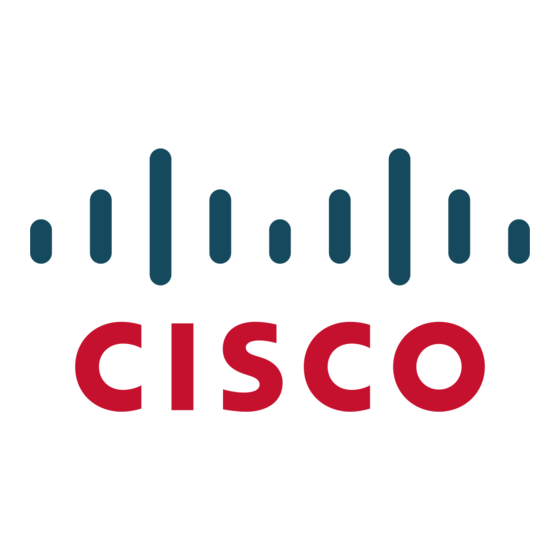Cisco 1003 - 1003 Router Руководство по развертыванию - Страница 22
Просмотреть онлайн или скачать pdf Руководство по развертыванию для Беспроводная точка доступа Cisco 1003 - 1003 Router. Cisco 1003 - 1003 Router 40 страниц. Lightweight access points

Determining Deployment Requirements
Building Type
Identifying the building type and its RF characteristics is critical in determining how many Cisco Radios
will be needed. The following table shows three basic building types that are common in the enterprise
market. If the building does not fall into one of these categories then some amount of professional service
may be needed.
Table 2
Building Type
Typical Office Space
Drywall Office Space
Brick/Concrete
Walled Office Space
Other
Building Homogeneity
If the building does not have similar RF characteristics throughout the coverage area, the coverage area
needs to be divided into areas with similar characteristics and the design process repeated for each area.
Average Client Throughput
The desired average user throughput is 1 Mbps to 18 Mbps.
Average client throughput is related to 802.11 protocol and signal strength, and thus Cisco 1000 series
lightweight access point density. In terms of protocol, 802.11b can support an average user throughput
of up to 6 Mbps and 802.11a and 802.11g can support a typical average user throughput of up to 20 Mbps
with reasonable Cisco 1000 series lightweight access point densities. Generally, the stronger the signal,
the higher the client throughput. However, as shown in the figure below, there is a point above which a
stronger signal does not increase client throughput. For 802.11b networks, this point is typically
-75 dBm, above which average client throughput is 5 to 6.5 Mbps regardless of increase in signal
strength. For 802.11a networks, this point is typically between -50 dBm and -60 dBm, above which
average client throughput is 24 to 30 Mbps regardless of increase in signal strength. Note that for
802.11a, the range over which the average client throughput improves is between -80 dBm and -50 dBm.
Deployment Guide: Cisco Aironet 1000 Series Lightweight Access Points
4
Building Type
Description
This is the most common enterprise building. This type of building consists of
large open cubicle areas with walled offices and conference rooms.
This type of building consists of mostly offices with dry wall characteristics.
This type of building consists of concrete or brick walls for both exterior and
for interior office space. Old buildings found on college campuses are good
examples of this type of building.
There are some buildings such as sports arenas and stock exchanges that do not
fit into one of the typical categories. These buildings typically require some
special consideration or professional service.
Deployment
78-17279-01
